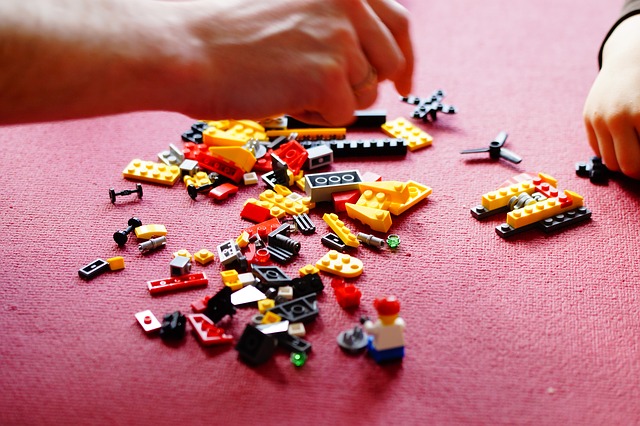Want a popular child? Get on the floor and play with your child
We want to raise our children to be social experts, to know how to make friends and build strong and lasting relationships. We want our children to be liked and popular, have fun at school and not make lots of enemies, right?
So how’s that done?
There is loads of research out there that tells us how humans develop our social skills. From playing face to face games with a baby, teaching them how to smile and how to interact with the adults in their world to showing your children how to be good friends by talking about your friendships, there’s a whole series of stages children go through.
First and foremost, the biggest thing (and the earliest) is an infant’s relationship with their mother (or maternal figure). This early bonding teaches a baby that they get responses from other people and that those responses can make them feel good. A baby learns to smile because of our reaction to them pulling the facial shape of a smile. The reaction releases chemicals in their brain and that gives them a real feel good factor. We still feel that as adults – think about a time when you have been with some good friends and your laughter and sense of good feeling has felt infectious, that’s what we learn as babies.
During their first years a baby will interact and learn to trust close relatives and friends. They learn that it’s not just their ‘mum’ who gives them that sense of joy and laughter. Sensory games, like peek-a-boo, tickling games, throwing and catching games all teach a baby to trust the world and give them that sense of safe fun and enjoyment. These are all crucial in developing later social skills, if we trust the people in our immediate circle then we learn to trust others and let friendships develop.
As babies grow they crawl and explore their surroundings. They use touch and taste to explore the world around them, most things are put in their mouths at some time or other. They begin to play little games with toys or objects in their world. Now here’s another really important bit. The way we learn to play at this point influences how we learn to play and share with others. If parents get on the floor and join in the games, they are extending the games from inside to the outside world. You show them how to play with different toys, you are demonstrating what to do, you are getting them used to more than one person being involved in a game. Yes, at first it is all about them, it needs to be, but as they grow to be toddlers they encounter other children and they want them to be like the adults they’ve encountered. Toddlers want other children to entertain them like they have been used to everyone doing. So they initiate contact with the other child, they shove them or snatch a toy.
This is where parents intervene and show their toddler how to share, how to say sorry, how to ask, how to say please. These basic friendship skills need to be learnt now and need to be taught by an adult. These are the skills that can only be learnt by showing a child how to play, how to interact, how to ask a child to play with them or be their friend. We don’t expect expect children (who are toddlers or who are socially acting like toddlers) to learn these skills verbally, or from a distance. That is why getting down to their level and playing with them, even if your child is 10 and having friendship problems, will help them learn loads.
Think about some of the awkward social situations you have been in, that lack of confidence you felt, uncertain what to say. Just imagine how different that would be if you had been taught what to say in those circumstances. I think we all wish that we had slightly better social and friendships skills at times, so let’s help tomorrow’s generation by getting down and joining in their games today.
If you are interested in learning about other things you can do to help your child grow, then sign up for a free 30 day trial of my parenting network Help My Child Grow by clicking here.



